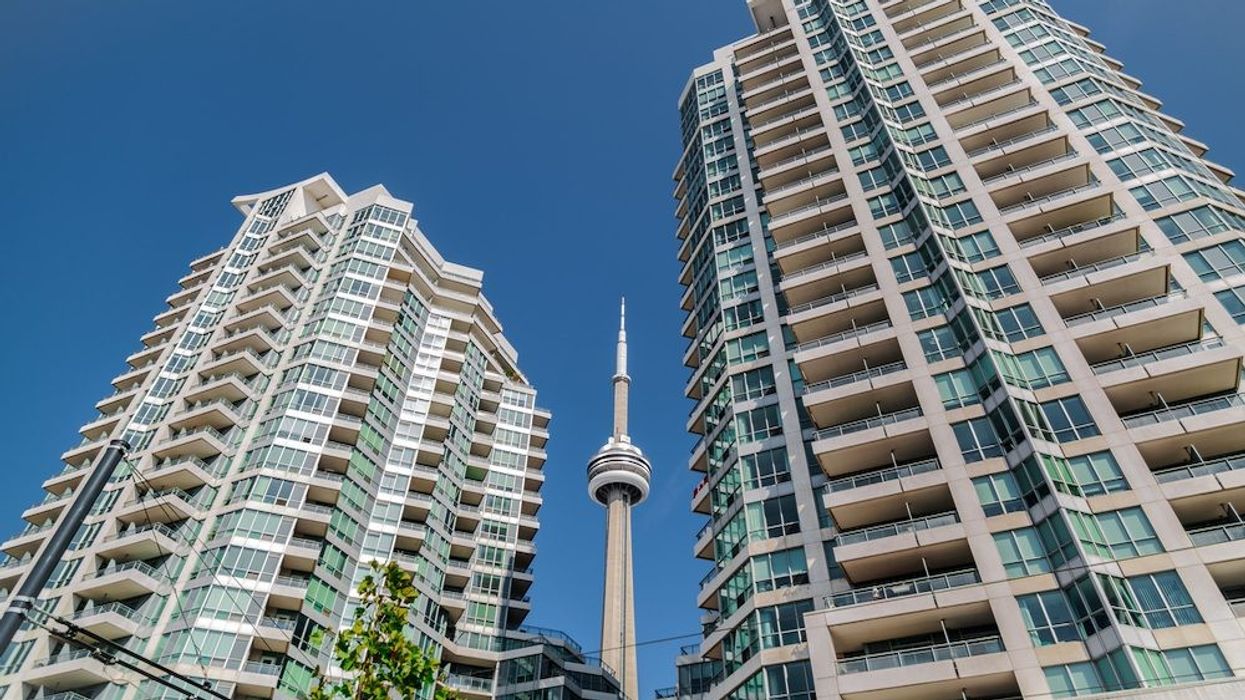It would appear that there's no stopping the GTA condo market right now. Even as sales took a noticeable drop and new listings plateaued, prices continued to climb to new heights.
The Toronto Regional Real Estate Board's (TRREB) latest condo market report, released on Thursday, revealed an average year-over-year price increase of 22.5% during the first quarter of 2022. The average price of a condo in the GTA now sits at $790,398, up from $645,303 seen one year prior. Unsurprisingly, Toronto held the highest average price out of all GTA regions, coming in at $809,853.
With the cost of single family homes soaring higher and higher, the condo market has seen widespread interest across the GTA, with TRREB President Kevin Crigger saying it makes up a key market segment.
"Many first-time buyers see condos as an affordable entry point into homeownership," Crigger said. "At the other end of the spectrum, condos provide a luxury alternative for many households. It is also important to note that investor-owned condominium apartments have been an important source of rental supply over the past decade."
The first quarter of 2021 saw record-breaking sales as aspiring homeowners looked to jump into the market. By comparison, sales in the first quarter of this year are down 15.6% to a total of 7,932. Toronto condos accounted for the vast majority of those sales, with a whopping 5,384 units changing hands in the city.
Limited inventory has plagued markets all across the GTA, fuelling competition and encouraging fierce bidding wars. During the first quarter, however, new condo listings plateaued. This, TRREB says, brought buyers some relief, but not enough to prevent the double-digit annual average price gains.
With the GTA's population expected to keep growing in the near future, further upward pressure on condo prices is on the horizon.
“The GTA population will grow at or near record levels over the next few years, supported by a strong regional economy” said TRREB Chief Market Analyst Jason Mercer. "The condominium apartment segment will be an important source of housing, both for people looking to purchase a home and also those looking to rent. This will continue to support price growth, but the pace of price appreciation may moderate as the market becomes more balanced over the next year."
The number of immigrants and students expected to come to Canada over the next two years will not only affect condo sales but rentals as well -- the market for which is already tight. According to TRREB, the GTA condo rentals were down 23.2% year-over-year, but that was in large part thanks to a dip in the number of listings. In fact, rental transactions as a share of listings was up annually, meaning demand remains strong.
“Immigration will be at or near record levels over the next two years," Crigger said. "The number of nonpermanent residents, including students, will also increase. Many of them will turn, at least initially, to the rental market. Investor-owned condominium apartments will be a key source of rental supply in the region. It is clear that rental demand is increasing relative to available units. While the homeownership market often dominates the headlines, policy makers also need to be cognizant about the need for rental housing supply as we move forward."
Costs for condo apartment rentals is also up, with the monthly rent for a one-bedroom rising 17.8% year-over-year to a new average of $2,145. Although noticeably higher than 2021 rents, it's still below the pre-pandemic average of $2,262.
With the Bank of Canada implementing two rate hikes over the past two months, and several more expected throughout the year, Mercer notes that demand in the rental market will likely increase as higher borrowing costs push some young people to "put their decision to purchase a home on hold."





















